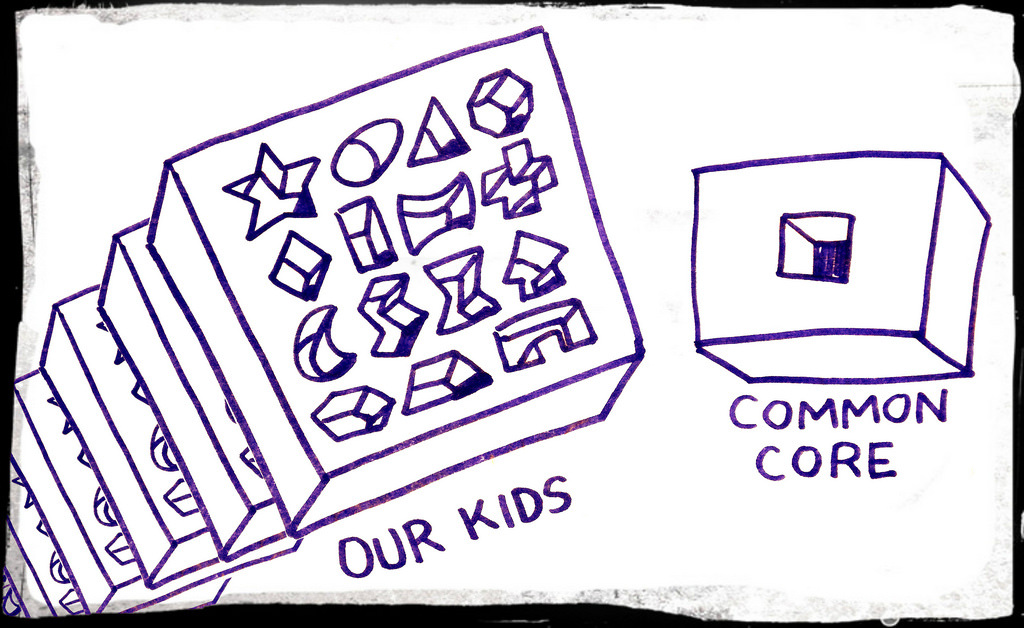| The Common Core could use a common sense public relations campaign. Or rather, it could have awhile ago; it’s probably too late now. Much of the media missed the real news from a poll by Dan Jones & Associates, released Monday, on how Utahns feel about Common Core, the education standards that have gotten tangled in the right-left tug-of-war that defines Americans politics these days. |
| | The quick takeaway was that Utahns oppose it. When the pollster asked, “From what you know today, do you support or oppose the Common Core standards,” only 29 percent said they either somewhat or strongly supported them; fully 41 percent opposed them, and 30 percent either were neutral or didn’t know. But the real story is that Utahns, in fact, don’t oppose it. That is evident by answers to the other questions. Do you believe students should graduate from high school “college-ready?” Ninety-two percent said they at least somewhat agreed. Should students expect to achieve the same regardless of the school they attend? Eighty-one percent said yes. When it comes to whether students should learn problem solving skills and critical thinking skills, two separate questions, 96 percent said they at least somewhat agreed with each, with more than 8 in 10 saying they strongly agreed. Such near unanimity is hard to achieve on any question unless prodded by loaded firearms and goon squads. When asked whether Utah’s schoolchildren should be compared with each other statewide, 78 percent at least somewhat agreed, which compares to 76 percent who felt the same about comparing Utah kids to the achievements of others nationwide. Only 56 percent supported global comparisons, but that’s still a solid majority. The purpose of Common Core, according to a report by the Hechinger Institute, is “ to increase critical thinking and problem solving skills, better prepare students for colleges and careers — and keep the United States globally competitive.” In other words, Utahns, by overwhelming majorities, support the ideas behind Common Core Standards, even though they oppose Common Core. So, what gives? Hechinger Director Liz Willen gave as good an explanation as any when she wrote last year that Common Core has fallen victim to “a bad combination of politics, protest and pontification…” Those are three things you don’t want in your life. Just ask the police in Ferguson, Mo. This explains why some states have repealed their support of Common Core (it originally was adopted in 45 states). It also explains why some of those states then decided to implement their own standards, which look a lot like Common Core. But wait, some of you are saying, shouldn’t education be a local matter, not something dictated to states from Washington? On the question of who should set standards for Utah students, the highest percentage, 42 percent, said “teachers, parents … and local school district administrators. Yes, and the apparently well-hidden truth is Common Core has nothing to do with Washington. It was drafted in 2009 by the National Governors Association and the Council of Chief State School Officers, two groups composed of state officials. And while it sets standards of achievement in math and English, the curriculum, textbooks and teaching methods used to achieve those standards are left entirely to states. Unfortunately, the Obama administration has muddied things by offering incentives, ranging from money to waivers from the floundering No Child Left Behind law, to states that adopt plans that sound a lot like Common Core. Actually, there probably is no public relations professional capable of saving this listing ship. The name alone has become as toxic as “global warming.” A report by USnews.com said public opinion against Common Core is nearing a tipping point. Recent national surveys by PDK International and Gallup found that three-quarters of Americans have heard of it, and 60 percent oppose it. In Utah, Gov. Gary Herbert has ordered a review of the program, saying it is contentious and divisive. It is, indeed. However, if Utah does away with it, how do state leaders intend to accomplish all those things nearly everyone seems to want from the education system? |


 RSS Feed
RSS Feed

